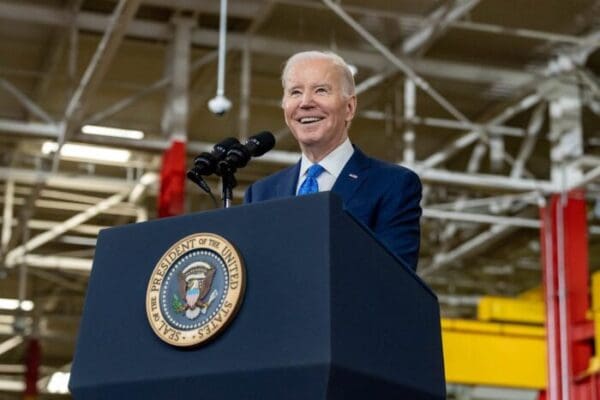The Biden-Harris administrationâs new âTime Is Moneyâ takes on “corporate tricks and scams like excessive paperwork, long wait times, and more that pad the profits of big business at the expense of everyday Americansâ time and money.” And even better yet, because it can be done administratively, it doesn’t require the Do-Nothing GOP-led Congress and will begin rolling out… on Monday and over the coming months.
If you’re like most people, you’ve spent hours trying to unsubscribe from a service that only took a few clicks to sign up for. Not only is that annoying, but for working people, it can be next to impossible to unsubscribe, because as the Biden-Harris administration puts it, “Time is Money” — hence the name of this initiative.
The initiative was announced by White House Domestic Policy Advisor Neera Tanden in a call with reporters in which PoliticusUSA took part.
The initial actions will begin rolling out on Monday, August 12th, and will happen over the course of the next several weeks or months. But get this: The Federal Communications Commission’s work on allowing consumers to press a single button to talk to a real person will be rolled out TODAY. Later this summer or early fall, we can anticipate the Consumer Financial Protection Bureau’s work on bypassing bank chatbots.
This administration has done a lot of important policy work for this country, but I have to say this could be a game changer for our every day lives.
Think of the different sectors this is meant to impact (some of these are pending rules):
⢠Subscription services and memberships – e.g. gym memberships, beauty and newspaper subscription (the Federal Trade Commission (FTC) proposed rule)
⢠Cable, internet, and phone companies (under the jurisdiction of the Federal Communications Commission)
⢠Banks and financial services (under the Consumer Financial Protection Bureau)
⢠Health insurance companies and the healthcare industry
⢠Airlines and the travel industry (with the new Department of Transportation rule on automatic refunds)
Goals of these actions include making it easier to cancel subscriptions and memberships. It should be as easy to cancel as it was to sign up, they say, because they understand that burdensome cancellation policies can lead to people losing money by being subscribed longer than they want.
A Senior Administration Official explained that the goal is instill a practice that ensures that companies across the board are fundamentally reorienting so that the consumer experience is is front and center. And yes, they started with themselves: an example being through the Social Security Administration making it easier for people to get direct services, which is different from (and I’d say BETTER THAN) a chat bot.
They also seek to improve access to customer service. This is enough to make a person giddy — the hours spent every week trying to speak to a human being could be spent doing important things like taking a walk. The regulation will put an end to the phone trees you can’t navigate your way through. They will require a single button to reach a real person.
It also seeks to streamline claims and paperwork processes, like in health insurance. No more needing to physically print out and mail claim forms.
The new Department of Transportation rule will require airlines to provide automatic refunds when flights are canceled, rather than forcing consumers to jump through hoops.
Overall, the key aim is to reduce the “general aggravation” and “headaches” that consumers face when dealing with companies, and to make it easier for people to manage their finances, subscriptions, and access services without unnecessary obstacles.
This new initiative goes along side the Biden-Harris Junk Fees initiative. In fact, it’s so aggressive toward The People that one reporter asked on the call in which PoliticusUSA participated what their response was to being seen as hostile to corporations, saying “People in the business community feel like they’ve been vilified… Is this about kind of shaming companies into doing the right thing?”
While the administration explained that they seek to even the playing field among corporations so that those who do not routinely take advantage of consumers aren’t hurt by those who do, it’s also worth us noting that this question goes right to the heart of the failed conservative idea that the “market” will solve any problems like corporate greed.
Reader, it does not.
As they’ve shown consistently shown us, too many corporations require a muscular federal government in order to not feast upon the carcass of the vulnerable public for their own profit. The fact that some corporations see being asked to behave well as being vilified begs the question: What do they think they are doing to consumers, if not being the villain by taking advantage of people through tricks and scams?
Perhaps we should be asking why some corporations routinely take advantage of consumers and only stop when the government steps in to force them to stop. They are not regulating themselves; contrary to their promise that if only the federal government would leave them alone, they would self-regulate. This concept is one of the fundamental failures of conservative economic theory that has dominated the United States for decades to the detriment of the working people.
This is yet another reason why it matters who is in the White House, and why people need to do the bare minimum of their civic duty of voting, because voting is when The People get to have a say over how they’re treated by corporations.

